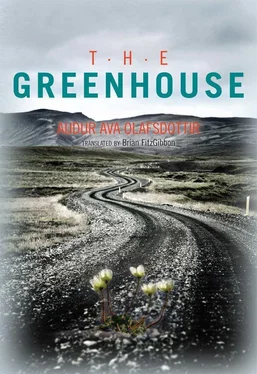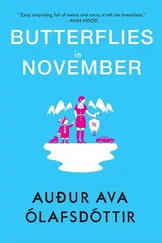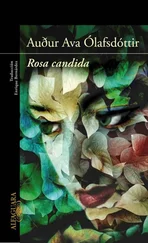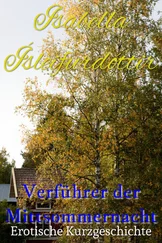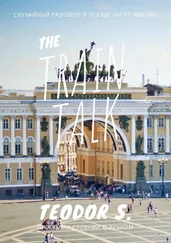— Very interesting, says Brother Matthew, unusual shape of the crown.
— And the stems have no thorns.
— Very interesting, he repeats, scrutinizing the photograph. Very peculiar color, extremely rare. It’s neither pink nor violet. Violet red, wouldn’t you say?
— Yes, exactly, I say, violet red.
— This is an unusually strong color that seems to spread all around it. Unless it’s the film, is this Kodak? Brother Matthew asks.
He takes a few steps with the photograph in his hand and holds it up to one or two of the red pink rose buds for comparison.
— Like I say, I’ve never seen anything like it. You should show your eight-petaled rose to Brother Zacharias; he’s ninety-three and he’s been in the monastery for sixty-two years. He’s actually started to lose his sight a little and we’re not always too sure of how much he can see.
Then he says it’s almost soup time, and suddenly remembers something before I even get a chance to mention the scent of my rose.
— We ordered some new boots for you. We felt we couldn’t just give you the old boots that have been left unused in the shed for seven years. We also saw that they would be too small. It took them six weeks to get here. At first there was a mistake and they got sent to a monastery in Ireland, where it rains a lot.
He escorts me into a little shed in the garden. The boots are on the floor right inside the door; they’re blue, glistening, and seemingly new, just like the ones I saw in my dream in the hospital.
— I hope they fit you, size ten and a half, isn’t that what you said?
They can also lend me working clothes, trousers, a sweater, and gloves. I slip into the trousers; the legs reach down to my calves, and the arms on the sweater are just as short; the last person who worked in the garden obviously wasn’t very tall.
— They haven’t been worn in a long time, for seven years in fact, Brother Matthew explains, and they probably need to be washed.
The gardening tools are also kept in the shed. They have quite a good collection of implements, including saws and various types of clippers, although they probably haven’t been used for ages. There are some tools there that I’ve never seen before; unlike any traditional implements I know and I can’t imagine what they’re used for.
— Brother Zacharias should be able to show you how they work, my guide tells me.
Finally, he tells me that it’s only fair that I should know that not all the monks are fond of the rose garden. Some of them are allergic to plants, and others get sick from the bugs that the ivy roses carry through the windows.
— Brother Jacob asked me to tell you not to plant any more climbing plants by the eastern wall off the sleeping quarters, close to his cell.
After sharing celery soup with the monks, I spend half a day on my own in my new boots in the garden, looking around, sketching the rose beds, and making a work plan for the following days. Although I may have some unclear ideas about myself, I do, nevertheless, have the ability to organize things ahead of time. I also see a potential way of enlarging the vegetable patch. The soup at lunchtime wasn’t bad, but I can see ways of increasing their variety of vegetables and creating a separate patch for some of the herbs that grow here.

I’ve become a gardener among monks and see that I have enough work cut out for me for the next two to three months. Until then I don’t have to think about my plans for the future or what I’ll do at the end of it, whether I’ll go home or stay here longer. I feel it’s quite likely, though, that I won’t have reached any conclusions about my life in two or three months’ time. I feel good in the garden; it’s good to use this isolation among the flower beds to explore my longings and wants, silent in the soil; I don’t even have to know the language. I’m also completely free from all the prayer sessions; I’m just a simple gardener. Everything needs to be reorganized; I have to draw up a new plan on the basis of the old design and everything I can find in the ancient manuscripts.
The first week all goes into weeding and clipping my way through the rosebushes, thorn bushes actually; then I’ll finally get to know the whole garden. Occasionally I spend short spells on the grass in my bare feet, but more often than not I’m in the blue boots.
I don’t know how much I’m supposed to report to Father Thomas, who is my main contact with the monastery. He says they’re giving me carte blanche, and I should trust my own instincts and insight into roses, I think he also said. When I explain my ideas, adjustments, and changes to him, he gives me approving nods and is quick to deal with the matter.
— We’re very happy to have you, he says, and he seems to be satisfied with every suggestion I make, including the idea of creating a small lawn by the benches. As he’s already told me himself, his main passion is movies and languages; in fact, I’m not sure the other monks have any great interest in the garden either. As Brother Matthew mentioned, most of them are immersed in the books, and their attention is mainly focused on putting some order to the collection of manuscripts.
I’m constantly discovering new species in the uncultivated growth — rose trees, rosebushes, climbing and winding roses, dwarf roses, and wild roses — big individuals on long branches or clusters of flowers, with a variety of shapes, scents, and colors. The scent in the garden is almost overwhelming and its colorfulness is quite unique: violet, lily blue, pink, white, gray, yellow, orange, and red. In fact, I need to organize the colors better and reorder them. It takes a lot of work to create a space for all the roses. After two weeks I’ve already identified and classified over two hundred species.
The monks give me free rein in the garden, but by the second week more of them are starting to come out to peep at my progress and sniff the roses. They’ve stopped throwing cigarette stubs into the flower beds and are generous in their praise when they see the changes. I have to admit that their appreciation of what I’m doing means something to me. I’m wondering if Brother Jacob will settle for a rhododendron bush instead of ivy.
Although I spend all day with the plants and think about the garden a lot, I nevertheless spend a considerable amount of time thinking about the body while I’m working in the soil. I don’t even manage to completely shut off those thoughts during my meetings with Father Thomas. Bodies seem to crop up in certain parts of my mind at twenty-minute intervals, even though there’s nothing specific in the environment that conjures them up. The fact that I’ve come here with a sincere longing to work in the flower beds and at the same time sort out my life a bit makes no difference.
When I’m studying grammar, the body isn’t in the foreground, but as soon as I try to form words the body appears again, like a stain blotting through a white cloth. On the surface we’re talking about the garden; in my mind I’m wrestling with my longings. I’m also afraid that Father Thomas might be able to read my mind like an open book; he has that look, as if he’s about to burst into laughter.
— What do you think of that?
— Of what?
He looks at me in puzzlement.
— What we were just talking about. The ivy rose.
I can’t get over how incredibly cheerful and quick to laugh these monks are, despite their abstention from the pleasures of the flesh. I try to picture myself as one of them, but even though I’m currently leading a chaste existence, no matter how hard I try to visualize myself among them, the white habit is either too small or too big.
Читать дальше
